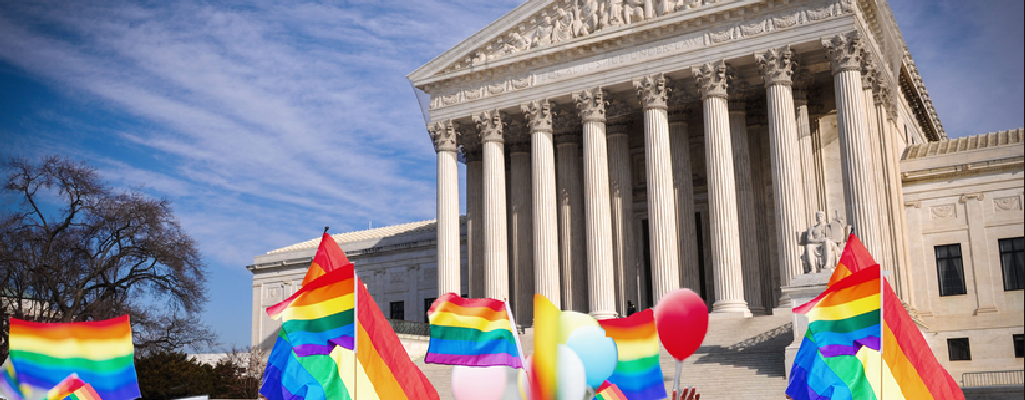
Same-Sex Marriage: Supreme Court Ruling Brings Right to Marry, Divorce, Create Pre-Nuptial Agreements and More
This week the U.S. Supreme Court ruled on the case of Obergefell v. Hodges, more commonly referred to as the “same-sex marriage case.” The ruling resolves two issues: First whether the Constitution requires states to issue marriage licenses to same-sex couples — and then second, if the Constitution does not require states to issue marriage licenses to same-sex couples, must states recognize same-sex marriages performed in other states where they are legal?
The 2013 United States v. Windsor case struck down the federal Defense of Marriage Act (DOMA) as unconstitutional because it violated the Equal Protection clause of the constitution. It left unclear the issue of whether states could ignore valid same-sex marriages entered into in other states.
This current case answers that question, with ripples and ramifications that will affect marriage, divorce, pre-nuptial
agreements, custody arrangements, division of property and more.
Here’s where we were before the ruling:
- About 70 percent of the American population supports gay marriage, and it was legal in 37 states.
- Georgia was one of 13 states where gay marriage was not legal. A 2001 amendment to the state constitution specifically excludes same-sex couples from marriage and prohibits them from attaining any other form of legal family status.
- Same-sex marriages were not allowed to take place within our state.
Same-sex marriages that took place in other states were not recognized as valid in Georgia.
The Supreme Court ruling in favor of same-sex marriage this month will bring a number of changes to Georgia as a state that has banned gay marriage. Potential outcomes include:
Same-Sex Couples Will Be Allowed to Marry
The primary effect is the one most people think of when the topic of gay marriage comes up: same-sex couples will be allowed to marry in Georgia, and have that marriage recognized as valid by the state. With that legal recognition comes legal
protection, allowing same-sex couples the same rights and privileges as those guaranteed to marriage between a man and
a woman. These include but are not limited to health insurance, state tax benefits, property and wealth sharing and transfers and next-of-kin status.
Same-Sex Marriages from Other States Will Be Recognized as Valid
Generally, states acknowledge marriages made in other states as legal and binding. But many states, including Georgia, have not automatically extended this recognition to same-sex marriages. Currently, same-sex couples who marry in a state that allows gay marriage will find those rights lost if they move to a state like Georgia that forbids it. This means they are excluded from health plan benefits, state tax benefits, and other legal rights married spouses enjoy.
Same-Sex Couples Will Be Allowed to Divorce In Georgia
An associated issue fewer people have considered, but that is just as important as the right to marry, is the right to divorce. Same-sex marriages end in divorce at about the same rate as traditional marriages. A same-sex couple that marries in another state and moves to Georgia currently cannot get divorced, because the marriage is not recognized as valid by the state. They cannot file for divorce or issue a divorce decree, and even though the marriage is not recognized as legal in Georgia, they are not free to remarry anyone else. These couples are left in legal limbo.
Prenuptial Agreements
A Supreme Court decision legalizing same-sex marriage means that all couples would have the same rights to create prenuptial agreements. It also would remove all barriers between states, meaning a prenup created in one state would be valid in the other 49 (with the usual caveat about differences in state laws of course).
Adoptions Will Become Less Complicated
Adoptions will also become more straightforward, as same-sex couples must currently go through a cumbersome two-step “second adoption” process, which allows a second parent to adopt a child without the first parent terminating their parental rights.
The Supreme Court decision will not clear all hurdles for same-sex couples, however. LGBT people are not protected against discrimination under the 1964 Civil Rights Act, or by any federal statute. Regardless of how much change the Supreme Court ruling brings in, as a society the echoes will continue to be felt for a long time after.
